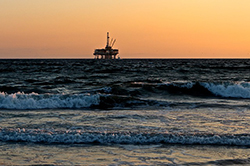 No matter what your workers’ compensation policy is, the best way to operate your business is to avoid having to use the policy altogether. Unfortunately, safety can be difficult to enforce in your own facilities, let alone offshore. Employees often have very different motivations than middle management and even upper management which can make them more prone to risky maneuvers. Here’s how to ensure quality control and safety even when you’re miles away.
No matter what your workers’ compensation policy is, the best way to operate your business is to avoid having to use the policy altogether. Unfortunately, safety can be difficult to enforce in your own facilities, let alone offshore. Employees often have very different motivations than middle management and even upper management which can make them more prone to risky maneuvers. Here’s how to ensure quality control and safety even when you’re miles away.
Never Assume
This is the most important piece of advice you can get. Accidents are rarely ever predictable to company owners, which is a major red flag that someone has been assuming rather than verifying protocol is being followed. It doesn’t mean you have to start breathing down management’s necks, but it may mean doing more follow up on where the gaps are when it comes to safety measures. Every company can improve in these matters, it’s just a question of which areas to focus on.
Inspect Machines
Your machinery is likely one of the biggest hazards, and it may be time to increase your maintenance on the equipment — especially if it’s several years old. It can be helpful to list out the common and uncommon hazards alongside potential mistakes that could lead to injuries before contacting the inspectors to review the current schedule and major priorities. Tweaking it can increase the safety (and financial stability) of everyone in the company.
Refreshers
Employees who concentrate on certain projects may forget their safety training for everything except what they work on. Everyone should know about how the different parts of the machines work together, whether they use them everyday or once a month. Safety gear cannot be optional on an offshore site, no matter what the rules of the country are. Mats, boots, helmets, masks: they’re all important. There should be full body harnesses for those working at dangerous heights. Even ergonomic chairs and stretching exercises can be implemented for people who are in a more office-type setting.
Emergency Training
Debris, oil, water cannot be on the floor or in people’s ways for very long. Employees are typically using their own wits to keep themselves from injury, and a rough patch or unexpected object blocking their path can easily make for a bad fall. Offshore facilities often have much more lax procedures when it comes to toxic materials, or even basic clean-up procedures. Taking shortcuts may not technically be illegal, but it can open you up to liabilities that are much more expensive than taking the time to clean. In addition to safety training around machines, employees should know basic emergency safety (e.g., fire, earthquake, etc.) and first aid for the unexpected.





